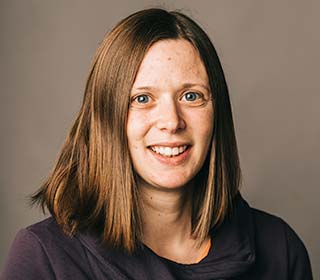
BSc (Hons) Sport Rehabilitation and Conditioning
Help athletes back to full functional fitness with this hands-on, accredited degree. Learn how to develop expert rehabilitation programmes and explore health rehab interventions in the community, where you'll work with special patient populations to improve their everyday quality of life.

Entry requirements
Three A-levels at grades BCC - BBB
Or BTEC triple grades DMM - DDM
Access to HE Diploma accepted with credits in line with UCAS tariff point range
Or T level M
GCSE English Language at Grade C/4 or equivalent
Applicants with other qualifications and/or experience will be considered on an individual basis.
A DBS (Disclosure and Barring Service) check is required.
UCAS points 104-120
UCAS code SRC1
UCAS institution code P63
Duration Three years full-time
Any questions?
Contact Charley, our Applicant Support Coordinator, if you have any questions. Email: applicantsupport@marjon.ac.uk and Charley will get back to you!
Course Summary
This three-year, full-time course inspires and motivates students to develop their passion for sport and exercise rehabilitation.
You'll experience the practical side of exercise rehabilitation from the very beginning of the course in our Sports Therapy & Rehabilitation clinic, always underpinned by the scientific principles of therapeutic interventions and developments in the field of sports therapy and rehabilitation. In the third-year students undertake the majority of their placement in this modern teaching clinic under the supervision of qualified staff. This includes opportunities to learn how to use latest technologies, e.g. diagnostic ultrasound, an innovative anti-gravity treadmill, RS footscan, laser therapy, interferential therapy for clinical assessment and rehabilitation.
During the course many students enjoy placement opportunities with professional sports teams including Plymouth Raiders, Plymouth Argyle FC, Plymouth Devils Speedway, Plymouth Albion and Plymouth Storm Wheelchair Basketball.
BSc (Hons) Sport Rehabilitation and Conditioning comprises enriching theoretical and evidence-based study, blended with practical application in our world-class Sports & Health centre. Students are given the opportunity to gain a minimum 400 clinical hours of hands-on experience. A number of additional qualifications are included at no extra, including the Intermediate Care in Sport Level 2 RFU qualification, Level 2 Gym Instructor and Level 3 Personal Trainer courses.
Why this course at Marjon?
You'll get a minimum of 400 hours hands-on clinical experience
Gain professional experience in our busy on-site NHS clinics and our own Sport Rehabilitation Clinic
Our close industry relationships give you excellent placement opportunities with professional sports organisations
You'll get the opportunity to complete the Level 2 RFU Immediate Care in Sport, the Level 2 Gym Instructor and Level 3 Personal Trainer courses
You'll get involved with rehabilitating a wide range of patients (from weekend warriors to professional athletes)
Includes opportunities to learn how to use latest technologies, e.g. diagnostic ultrasound, an innovative anti-gravity treadmill, RS footscan, laser therapy, interferential therapy for clinical assessment and rehabilitation
Modules for this course
Course Snapshot
“ We start by learning about the psychological behaviours that relate to high level sport performance and also learn soft tissue techniques to help relieve injuries with real clients. In the second year you will learn how to assess and treat spinal injuries, learn more about how the body heals after injury and undertake a work placement in the industry. The third year gives you more work experience and will give you a better understanding of injury prevention techniques.”
1st Year
Personal and professional development
Anatomy and physiology for sport and exercise
Patient management 1
Functional anatomy for sport therapy and rehabilitation
Sport rehabilitation 1
Musculoskeletal assessment
2nd Year
Research method and analysis in sport and health science
Engaging with employability
Patient management 2
Sport rehabilitation 2
Strength and conditioning
Pathology and clinical reasoning
3rd Year
Honours project
Patient management 3
Strength and conditioning for performance
Sport rehabilitation 3
Clinical experience
Current students say...
Jack Frith
"As a mature student, I chose to study for a degree at Marjon due to its fantastic facilities and the strong community feel amongst the students and staff. This degree has been thoroughly enjoyable, and students are encouraged to develop sound theoretical knowledge and practical application of clinical skills. During my course, I got to undertake multiple internships and work experience placements in a variety of settings and scheduled clinic shifts at the onsite Marjon clinic."
Nikita Baker
“Work placements are core to the rehabilitation course and one of the real highlights for me has been undertaking a placement with HMNB Devonport Field Gun Crew, allowing me to work in a military environment and experience a range of injuries. The course is split into different modules helping get all students from different backgrounds to the same level. Having the opportunity to work with a variety of people throughout the course has built my confidence in talking to and treating clients.”
Rebecca Tidmarch
“The practicality of the course means we are able to learn everything we need to without sitting in lectures 24/7. We get the opportunity to work in real life situations in the clinic here and we get to work in teams for our placement opportunities. I’ve built in confidence in what I know and the lecturers' friendly approach also helps me to develop. The course has also improved my writing and time management skills.”
This course is perfect if you’re curious about
How can I get an injured athlete ready for the next competition?
What does a strength and conditioning programme look like for a professional sports team?
Can an athlete ever get back to peak performance after injury?
Does Kinesiology tape (brightly coloured tape) actually work?
How do you change an athletes running mechanics to prevent injuries?
How do you prevent hamstring injuries in professional football?
“ I used the sports therapy clinic and it is the best treatment I have ever received. The students and graduates are a credit to the university and clearly demonstrate that they are extremely knowledgeable, show care in wanting to help me understand the causes of my problem areas, and provide excellent treatment and aftercare advice. I only wish I had known of the clinic sooner having engaged with numerous therapists in the past, none of whom have been so attentive and determined to fix me!”
See where our graduates are now
Maisie Squibb
“I can safely say I wouldn’t be where I am now without Marjon! I delivered a presentation about my dissertation at a Marjon conference in 2020 which was chaired by my now PhD supervisor. I was approached afterwards and invited to another university to apply for a PhD. I was nervous for this big jump in academia but fully believe the skillset and hard work instilled at Marjon stood me in good stead for what was to come. Learning is something I love and doing this as a job is incredible.”
Maisie is a PhD student at the Institute of Technology, Carlow & Auckland University.
Daniel Feasey
“The job is different every day. Watching clients progress from your own advice is great. The job is not typical of 9-5. Being self-employed enables me to work from home, so I can build a client base around when I can work. Having experienced lecturers who knew the subject enabled me to engage with them and prepare for what was expected from me after University. It made me aware that this industry is always changing and the importance of keeping up to date with current practice.”
Daniel is a Sports Therapist for Torquay United Football Club and Complete Physical Therapy.
What might you become?
We are renowned for producing excellent vocationally focused graduates. This course prepares you to work as exercise professionals in preventative and rehabilitative treatment for the National Health Service (NHS). It equips you for careers as clinical demonstrator, as performance specialists with professional sports clubs and governing bodies and as rehabilitation specialists both in the private and public sectors, working in sports clubs and sports injury clinics. You are also well prepared for a number of roles with the Armed Forces. You could progress onto a MSc such as our own MSc Sport & Exercise Psychology, a PhD or train as a teacher.
Recent graduates have gone to work with practices within the local area as well as some graduates setting up their own very successful clinics. Our graduates have also gone on to work for Plymouth Argyle, Plymouth Albion, Exeter Chiefs and Torquay United and NHS health clinics.
Accreditation

The British Association of Sport Rehabilitators and Trainers (BASRAT)
BASRaT is the UK regulator and professional association for Sport Rehabilitators and advocates improving health through physical activity.

The Chartered Institute for the Management of Sport and Physical Activity
CIMSPA is the professional development body for the UK’s sport and physical activity sector, committed to supporting, developing and enabling professionals and organisations to succeed and, as a result, inspire our nation to become more active.

CIMSPA - Quality Assured
This badge recognises CIMSPA education partners who have evidenced best practice within most of their operations, processes, and practices, and are seen to be offering highest quality provision to its learner. This involves completion of CIMSPA's annual quality assurance review in order to maintain this badge.
How you’ll be taught and assessed?
How will you be taught?
Includes lectures, seminars, tutorials, clinical experience and practical sessions. Practical teaching takes place in our dedicated Sport Rehab clinic, commercial clinic and our BASES accredited physiology and biomechanics laboratories.
How will you be assessed?
Assessment methods include case studies, written exams, essays, laboratory reports, poster, competence based exams and practical exams.
Fees and funding
Fees UK students: £9,790 per annum
This fee covers your tuition and access to course-specific equipment and facilities, as well associated services including access to the library, study skills support, IT support, student support and wellbeing services and membership of the Student Union. There may be additional costs by course.
Additional costs:
Students are required to self-fund:
- A DBS check (£52)
- A first aid course (unless you have already completed one)
- Marjon sports kit (£25-100)
- Printing costs
- Travel costs associated with placements
- Insurance for placements (£35 per year)
Funding available for this course
Our Student Funding Advisors offer confidential and impartial advice about your funding options.
Learn moreLecturers
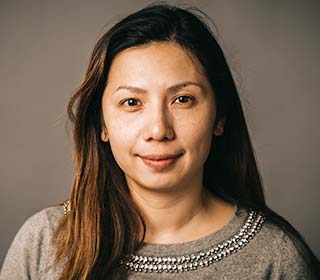
Sherrie is a Chartered Physiotherapist in both UK and Kong Kong and an accredited member of the Acupuncture Association of Chartered Physiotherapists. She has over twenty years extensive clinical experience in NHS and private sectors. She is passionate in clinical teaching and research support evidence-based practice in healthcare. She specialises in musculoskeletal physiotherapy and cardio-pulmonary rehabilitation. She is currently studying for a PhD sponsored by the University Plymouth Hospitals NHS Trust about vision and balance changes in Cataract patients receiving lens replacement surgery.
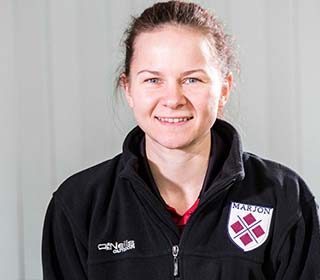
Vicki specialises in exercise rehabilitation and has worked with diverse groups including adolescents, sports people, disabled athletes, fire service personnel and sarcoma patients. She currently leads the physical performance services for the FA Women's High Performance Centre.
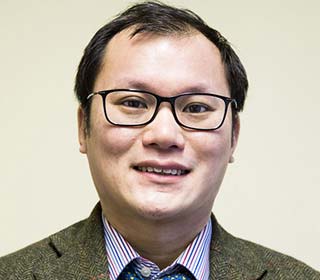
Professor Gary Shum
Professor of Biomechanics and Physiotherapy, Academic Director of Clinical & Technical Services
View profile
Gary is an Honorary Associate Professor for the Royal Devon and Exeter NHS Foundation Trust where he conducts research in back pain and nerve biomechanics. He is a practising chartered physiotherapist and brings a wealth of experience in musculoskeletal injury and diagnosis including diagnostic ultrasound imaging.
Find out more about studying BSc (Hons) Sport Rehabilitation and Conditioning at Marjon
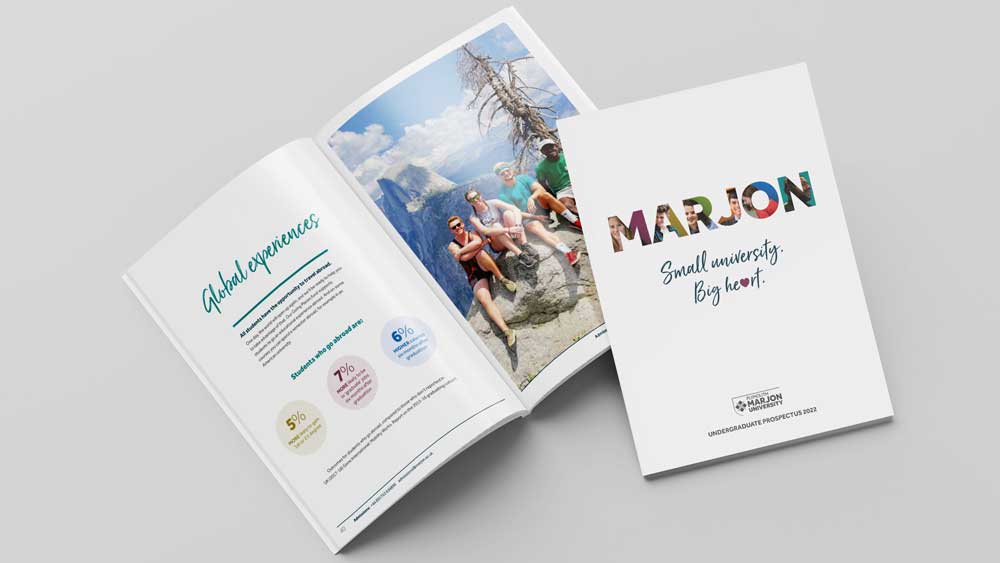
Discover Uni collects data about university courses in the UK. All universities publish Discover Uni data on their online course pages enabling you to compare similar courses at different universities.




